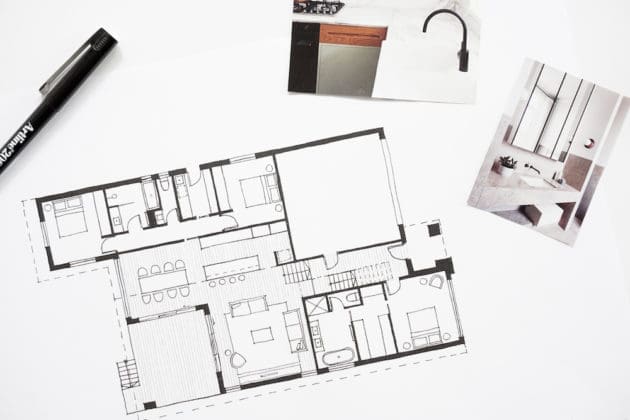

Common renovation mistakes can derail even the most meticulously planned projects, leading to unexpected costs, delays, and frustrations. Imagine spending countless hours envisioning your dream kitchen or bathroom, only to face unforeseen challenges during the renovation process. Avoiding these pitfalls is essential for any homeowner looking to enhance their living space effectively and efficiently. This comprehensive guide will cover several of the most prevalent common renovation mistakes and provide actionable solutions to help you avoid them. We’ll explore topics such as inadequate planning, budget overruns, problematic contractor choices, and overlooking critical details. This structure will guide you step-by-step through actionable tips, preventing these costly pitfalls and ensuring a smoother renovation experience.
Inadequate Planning: The Foundation of a Successful Renovation
Defining the Scope of Your Project
A critical early step is defining the project’s scope. This requires a clear vision of what you want to achieve and what resources you have. A comprehensive plan, outlining every detail, from the type of materials to the exact measurements, will help prevent costly surprises down the road. Inadequate planning frequently leads to significant budget overruns and frustrating delays. Imagine a homeowner who envisioned a simple kitchen remodel, only to find themselves entangled in endless disagreements with contractors about changing specifications, leading to delays and added costs. Careful planning anticipates potential hiccups and allows for adjustments without compromising the project’s overall goals. Prioritize accurate budgeting, meticulous scheduling, and meticulous research to avoid common mistakes.
Budget Constraints and Realistic Expectations
One of the most frequent mistakes homeowners make is failing to accurately assess their budget. Exceeding the allocated budget can quickly derail the renovation process, leading to substantial financial strains and stress. Creating a detailed budget that accounts for all potential expenses, including materials, labor, permits, and contingency funds, is essential. A contractor’s quote is just one factor; anticipate hidden costs associated with unexpected challenges like difficult-to-access materials or unforeseen structural issues. Remember that a realistic budget allows for flexibility and potential adjustments.
Choosing the Wrong Contractor: A Critical Decision
Importance of Due Diligence
Choosing the right contractor can significantly impact the outcome of your renovation project. Conduct thorough research, checking for proper licensing, insurance, and experience. Request references from previous clients and assess their past projects. A reputable contractor possesses not just the technical skills but also the ability to communicate effectively, understand your vision, and adhere to the agreed-upon schedule and budget. Poorly researched choices, on the other hand, often result in subpar workmanship, disputes over payment, or unmet expectations.
Overlooking Critical Details: Hidden Costs and Delays
Importance of Professional Inspections
Many homeowners overlook the importance of pre-renovation inspections. These inspections can reveal hidden problems that might significantly affect your budget or even hinder the process. For example, a seemingly simple plumbing issue can escalate into a major project, consuming valuable time and resources. Thoroughly inspecting the existing infrastructure, such as electrical systems, plumbing, and structural elements, is essential before initiating any significant project. This step often prevents unforeseen delays and potentially high costs. In some instances, a professional assessment can lead to a more realistic and manageable renovation plan.
Poorly Managed Renovation Timelines
Setting Realistic Expectations
Poorly managed timelines frequently contribute to costly renovation mistakes. Creating a realistic renovation schedule based on the nature and scope of the project, material availability, and contractor commitments is essential. A meticulously detailed schedule outlining potential roadblocks and solutions can effectively mitigate unnecessary delays. This approach addresses potential setbacks with proactive strategies that help maintain the project timeline, leading to a smoother and more efficient renovation. Ignoring this process can lead to delays and potentially cost overruns due to extending work beyond projected deadlines.
Ignoring Budget Flexibility: Essential for Unexpected Costs
Creating a Contingency Fund
Renovation projects often encounter unforeseen circumstances. These could include unexpected damage or additional material requirements. Building a contingency fund allows you to absorb unexpected costs without compromising the project’s overall budget. This flexibility is essential for successful completion. Many homeowners fail to account for unexpected expenses, leading to significant financial stress and project delays. Including a buffer in your budget ensures you’re prepared for unforeseen challenges and can confidently navigate any complications during the renovation process.
Neglecting Proper Ventilation and Insulation:
Impact on Energy Efficiency and Comfort
Poorly insulated rooms or inadequate ventilation systems can lead to increased energy costs, uncomfortable temperatures, and poor indoor air quality. Investing in proper insulation and ventilation not only improves energy efficiency but also enhances the overall comfort and longevity of your home. This approach creates a more sustainable home with better quality living conditions.
Ignoring Sustainable Practices and Materials:
Environmentally Friendly Choices
Adopting environmentally friendly practices can contribute to the sustainability and longevity of your home. Incorporating sustainable materials and techniques can significantly benefit the environment and reduce your carbon footprint. Sustainable materials are often more durable and efficient in the long run, reducing maintenance costs and increasing property value over time. Prioritizing sustainability may lead to additional upfront costs but offers long-term advantages.
Poor Quality Materials: Lasting Impact on Your Project
Importance of High-Quality Materials
Using high-quality materials is crucial for long-term value and project durability. Low-quality materials, though initially less expensive, often lead to premature damage, requiring costly replacements and further renovations. Materials that maintain their aesthetics and functional integrity over time will greatly enhance the resale value of your property.
Neglecting Safety Procedures: Avoiding Accidents
Importance of Safety Measures
Prioritizing safety throughout your renovation project can prevent accidents and injuries. This includes adhering to safety regulations, using appropriate safety equipment, and creating a safe working environment. Following proper procedures can significantly reduce the risk of property damage and personal injury. Neglecting this aspect can result in significant financial implications and potential legal consequences. Enacting safety protocols is critical for a smooth and secure renovation process.
In conclusion, avoiding common renovation mistakes is crucial for a successful and stress-free project. By thoroughly planning, understanding your budget, and hiring reputable contractors, homeowners can significantly increase their chances of a positive outcome. Remember to prioritize quality, research thoroughly, and address any concerns promptly to prevent costly errors and maintain a harmonious renovation process. For more renovation advice or to discuss your project, contact a professional today!